Why Retro Games Are Still So Hard to Beat
18 April 2025
If you’ve ever dusted off an old console or fired up an emulator to play some classic retro games, you’ve probably had this thought cross your mind: “Why are these games so ridiculously hard?!” It’s not just you. Retro games are tough — they’re like the personal trainers of the gaming world, pushing you to your absolute limits and showing no mercy when you fail.
But what makes them so challenging, especially when compared to modern titles? Why do so many gamers still consider beating retro games a badge of honor? Let’s dive deep into the nostalgia-packed world of retro gaming to uncover why these pixelated classics are still nearly impossible to conquer. 
The "Git Gud" Philosophy: A Product of the Times
Back in the day, the gaming industry wasn’t as forgiving as it is now. Developers didn’t have the luxury of massive budgets, sprawling open worlds, or endless updates to keep players hooked. Instead, they had to rely on razor-sharp difficulty to stretch gameplay hours.Think about it: Most retro games were short — often just a few levels with straightforward objectives. If they were too easy, players would breeze through them in an hour and never touch them again. By making them hair-pullingly hard, developers ensured that players got their money’s worth.
Remember Contra and its infamous "30-lives code"? Without it, many of us wouldn’t have even made it past the first stage. Retro difficulty wasn’t just a challenge; it was a necessity. 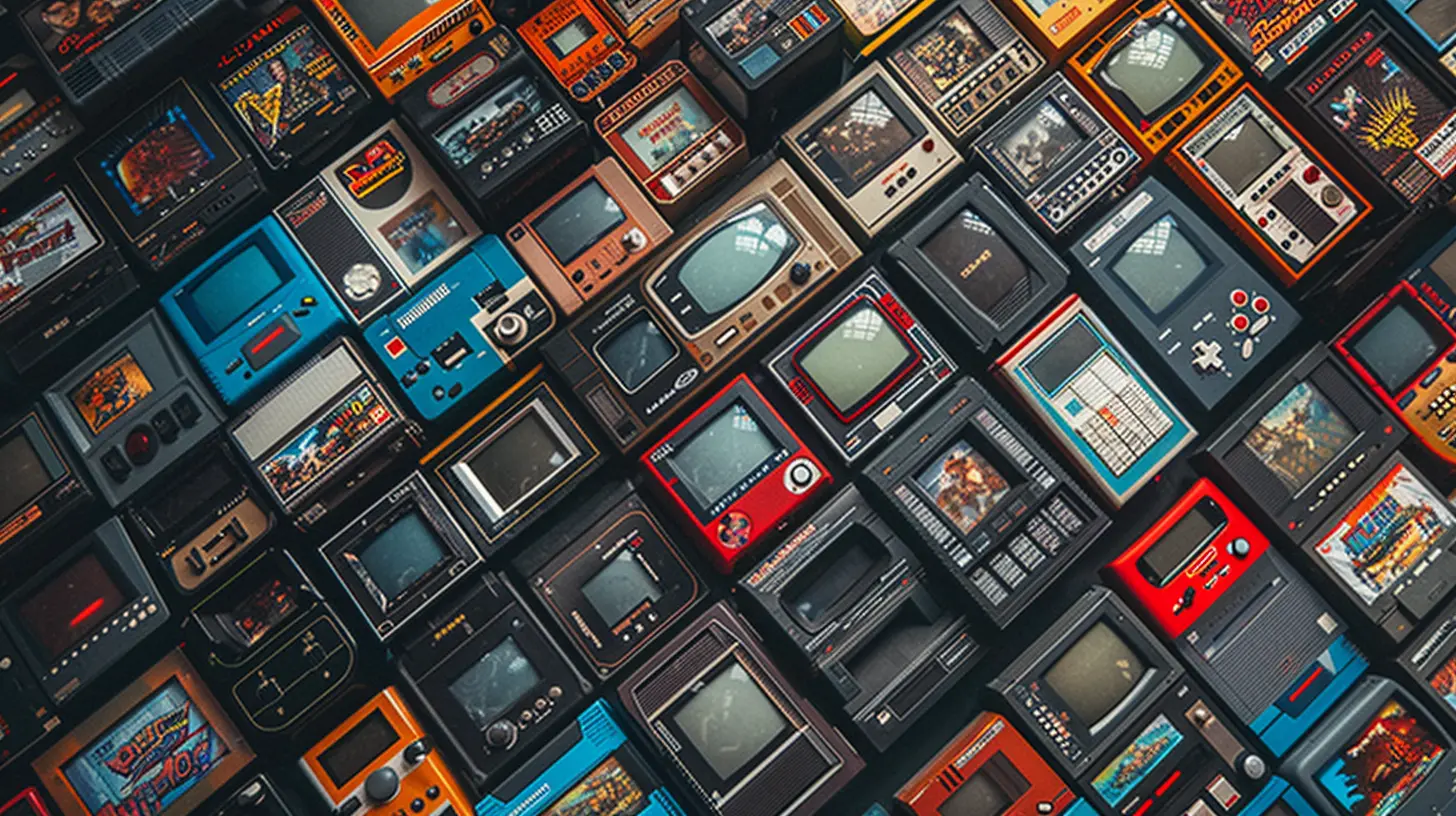
Limited Lives and Brutal Punishments
If you’re used to modern games that checkpoint your progress every two minutes, those "Game Over" screens in retro games can feel downright brutal. Many classic titles had a "three lives and you’re done" system. Die too many times, and you’d start from scratch.Imagine grinding through Super Mario Bros., reaching the final castle, and losing to Bowser. Guess what? Back to level 1-1 you go! That kind of punishment made every life feel precious and every mistake sting.
Modern games, by contrast, coddle us. They autosave, offer difficulty sliders, and even give us second chances with mechanics like respawning. Retro games didn’t care about sparing your feelings — they wanted you to learn, adapt, and try again. 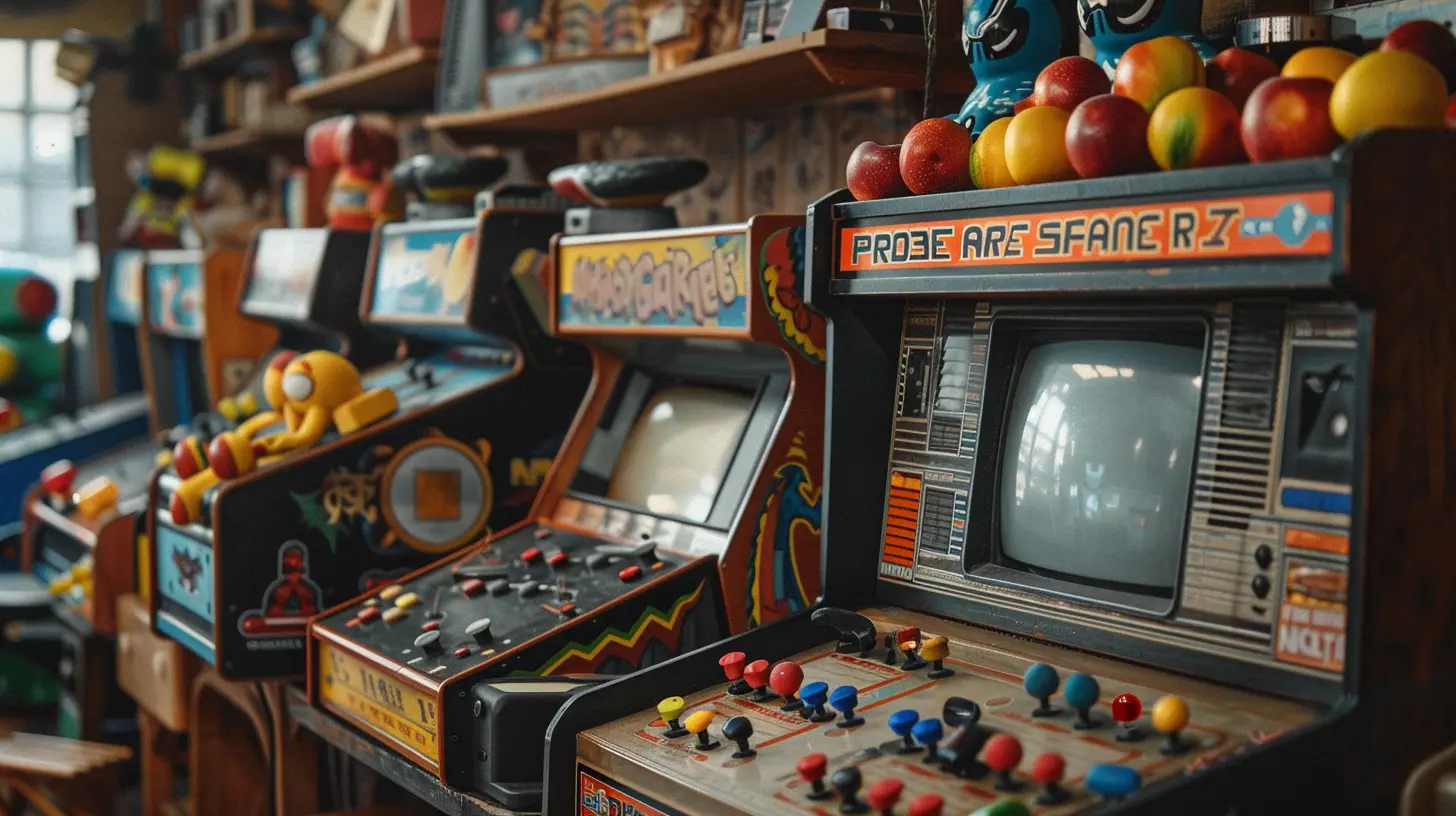
Controls That Felt Like Wrestling a Brick
Let’s be honest: A lot of retro games are hard because their controls feel like wearing oven mitts while trying to perform surgery.Take Ghosts ‘n Goblins as an example. Your character, Arthur, moves like he’s stuck in quicksand. Jumping? It’s more like committing to a leap of faith, because once you’re airborne, there’s no turning back.
Now, compare that to modern games where you can double-jump, wall-climb, and air-dash with precision. Retro controls weren’t designed to be forgiving. They were designed to challenge you by creating obstacles out of simple mechanics.
Was it frustrating? Absolutely. But it also made victory feel so much sweeter. 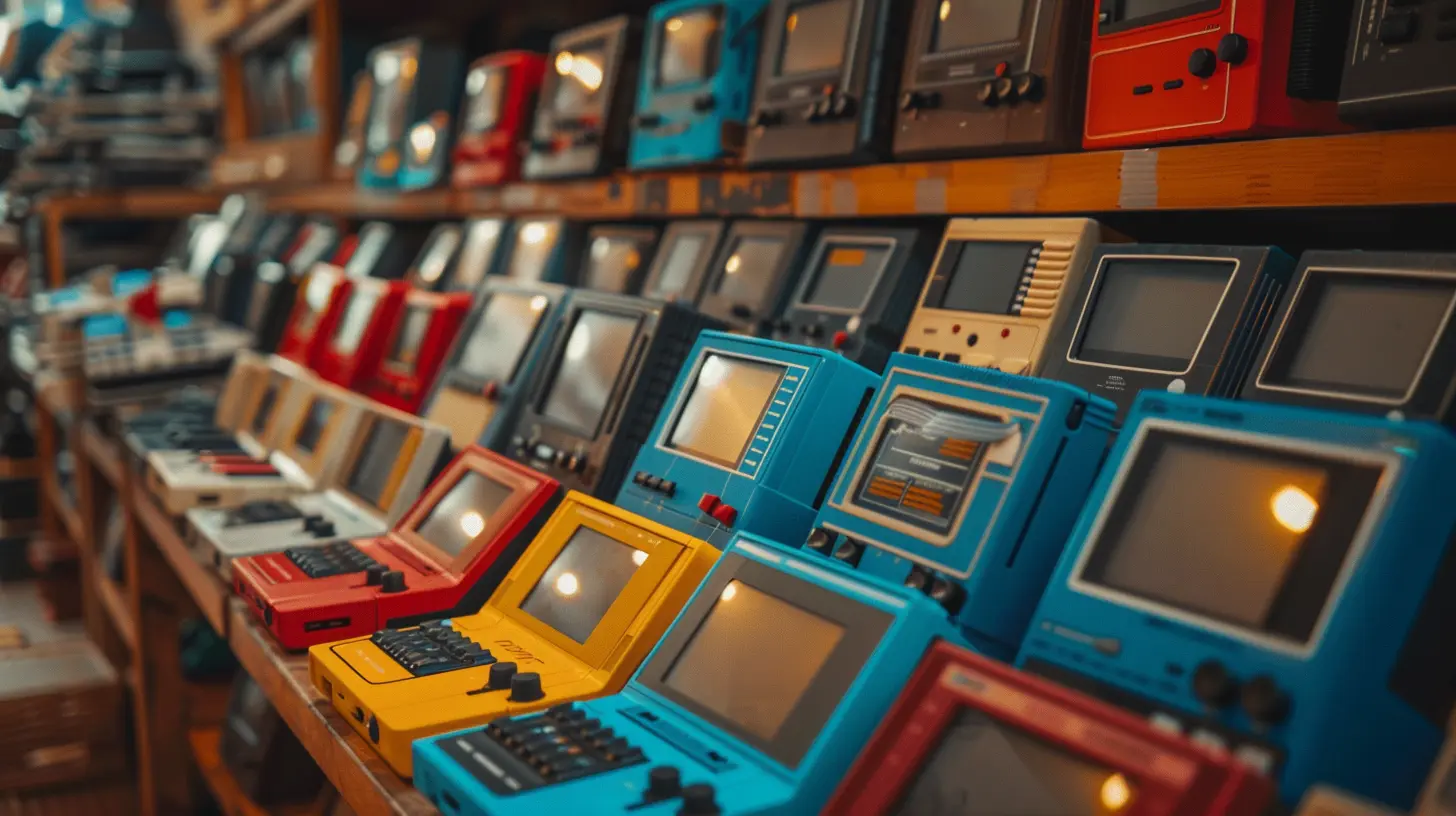
They Expected You to Memorize EVERYTHING
Retro games had this unspoken rule: If you want to win, you better memorize every enemy pattern, every trap, and every pixel-perfect jump.Take Mega Man, for example. Boss fights in that game weren’t about brute force or clever strategy. They were about trial and error. You had to learn each boss’s attack patterns, anticipate their moves, and execute your counters with near-perfect timing.
Modern games, on the other hand, often spoon-feed you hints, tutorials, and glowing markers that show exactly where to go. Retro games left you to fend for yourself, and honestly? That’s part of their charm. They respected your intelligence (or stubbornness) enough to let you figure things out on your own.
Arcade Roots: Designed to Drain Your Quarters
A huge chunk of classic games originated in the arcades, and here’s the harsh truth: They were designed to take your money.Arcade games like Pac-Man and Donkey Kong were built to be difficult on purpose. The harder the game, the more likely you were to pop in another quarter for “just one more try.”
Even when these games transitioned to home consoles, their DNA didn’t change. They were still brutally unforgiving, pushing you to master their challenges. That arcade influence is part of what made retro games so notoriously hard to beat.
No Hand-Holding Allowed
Have you ever noticed how modern games practically walk you through the first hour? Tutorials, glowing objectives, and pop-ups telling you what to do next are par for the course. Retro games? None of that.Take The Legend of Zelda for NES. The game literally drops you into an open world with zero guidance. It’s up to you to figure out where to go, what to do, and how to survive.
This lack of hand-holding felt daunting, but it also sparked a sense of discovery and accomplishment that’s missing from many modern titles. Retro games forced you to think, explore, and pay attention in ways that games today rarely demand.
Nostalgia Blindness: Were These Games Really Fair?
Let’s be real for a second. While we love retro games for their brutal difficulty, some of them weren’t exactly fair.There are countless examples of "cheap" game design meant to trip you up. Enemies spawning out of nowhere, unfair hitboxes, and leaps of faith with no guarantee of a safe landing were all too common.
Remember Battletoads and its infamous Turbo Tunnel? That level was less about skill and more about sheer muscle memory. But oddly enough, these moments of "unfairness" became part of the legacy. They gave retro games their reputation as tests of endurance and precision.
Why Do We Keep Coming Back?
So, with all this frustration, why do people still play retro games? Why do they have such a passionate fanbase, even decades later?The answer lies in their purity. Retro games strip gaming down to its bare essentials: skill, reflexes, and determination. There are no cosmetic upgrades, loot boxes, or cinematic cutscenes to distract you. It’s just you, the controller, and the challenge.
And let’s not underestimate the role of nostalgia. For many of us, retro games represent a simpler time. Beating them feels like reconnecting with our younger selves, reliving those Saturday mornings spent on the couch, controller in hand, trying to beat Ninja Gaiden for the hundredth time.
Are Retro Games Really Harder Than Modern Ones?
This question gets debated a lot, and it’s not as black-and-white as it seems. While retro games are undoubtedly tough, modern games offer challenges of their own. Take games like Dark Souls or Hollow Knight — they’ve brought back old-school difficulty while combining it with modern design sensibilities.That said, retro games have a unique way of humbling us. They don’t give you the luxury of leveling up or grinding for better gear. You have to get better, plain and simple. And that’s why they’ll always hold a special place in gaming history.
Wrapping It Up: The Love-Hate Relationship
Retro games are hard, no doubt about it. But their difficulty is exactly what makes them so unforgettable. They test your patience, punish your mistakes, and reward your perseverance in ways that few modern games can match.So the next time you’re tempted to rage-quit after dying for the 50th time in Castlevania, take a deep breath. Remind yourself that gaming greatness isn’t about how many times you fail — it’s about how many times you get back up and try again.
all images in this post were generated using AI tools
Category:
Retro GamesAuthor:

Greyson McVeigh
Discussion
rate this article
5 comments
Jolene Bailey
Retro games challenge players with their simplicity and unforgiving mechanics, offering a unique sense of achievement that modern titles often lack. They truly test skill.
May 15, 2025 at 3:29 PM

Greyson McVeigh
Absolutely! Retro games emphasize skill and challenge, providing a rewarding experience that modern games sometimes overlook. Their simplicity is what makes overcoming obstacles so gratifying.
Adeline Gates
Retro games captivate us with their challenging gameplay and nostalgic charm. Their simplicity, unique mechanics, and often punishing difficulty create an enduring appeal that keeps players coming back for more.
April 29, 2025 at 3:28 AM

Greyson McVeigh
Absolutely! Retro games' blend of challenge and nostalgia makes them timeless, drawing players back for their unique mechanics and rewarding gameplay.
Grace McElveen
Retro games challenge players with their simplicity and design, fostering skill development and strategic thinking. Their enduring charm lies in unique mechanics and nostalgic appeal, proving timeless gaming experiences can’t be easily surpassed.
April 22, 2025 at 4:10 PM

Greyson McVeigh
Thank you for your insightful comment! I completely agree—retro games indeed offer a unique blend of simplicity and depth that fosters skill and nostalgia, making them truly timeless.
Vaughn Sheppard
Great article! You encapsulated the enduring charm and challenge of retro games beautifully. Their unique mechanics and nostalgic appeal continue to captivate players, proving that sometimes, simplicity and creativity triumph over modern complexity. Thanks for sharing your insights!
April 21, 2025 at 2:30 PM

Greyson McVeigh
Thank you so much for your kind words! I appreciate your insights on the lasting appeal of retro games.
Maura Rogers
Retro games challenge players with their simplicity and difficulty, often requiring skill and patience. Their nostalgic charm and unique mechanics keep them relevant and engaging today.
April 19, 2025 at 4:17 AM

Greyson McVeigh
Absolutely! Retro games' simplicity paired with challenging mechanics fosters both nostalgia and skill development, making them timelessly engaging.
MORE POSTS
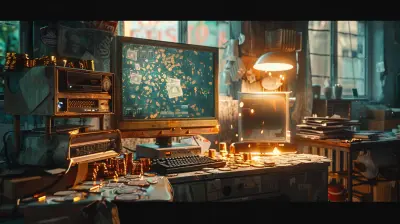
Microtransactions: Convenience or Cash Grab?

Retro Revival: Kickstarter Games with a Nostalgic Twist
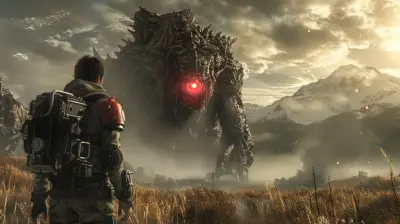
Cross-Platform Play: The Ultimate Guide to Gaming Across Consoles

Crafting Immersive Worlds: Tips for Creating Engaging Locations in Games

Space Colony Simulators: Building and Managing New Galactic Civilizations